Ad land’s Young Guns: Neel Jadhav, Jet Airways
A marketer by accident, Neel Jadhav, Brand Manager, Jet Airways, believes he is one of the rare ones who found their passions and are getting paid to pursue it. Over the last 6 years, Jadhav has managed 2 large household brand names – Godrej and Jet Airways. At Jet Airways, he leads a young and energetic brand team that manages the Jet Airways brand globally.
When he is not behind his laptop screen working, he is behind his camera lens taking pictures. Whenever his boss at work and the one at home allow him, he loves flying to places near and far away. He is a certified advanced scuba diver and a regular at most tiger reserves across the country.
What does it takes to climb up the ladder in advertising? Here’s Neel Jadhav in his own words...
How did you get into the role you are serving?
Like they say, some things are just meant to be. I remember sitting in front of an interview panel of a big consulting firm in college and being asked the question “So Neel, you have done your Diploma in IT, your engineering in IT and you have taken Systems as a minor stream in your MBA, you have made it to the final round in your selection process and now you are now saying you are not sure if you want a career in IT?” Thank god, I gathered the courage to follow my gut and as my luck would have it, I got recruited by Godrej the very next day.
At Godrej, I started with a core brand role with a strong market and channel exposure in my first year. In my next year, I was given the opportunity to work in the Godrej Masterbrand team, which guides the overall brand and acts as an internal consultant to sub-brands. My stint there happened during the overall rebranding exercise which was spearheaded through the Aamir Khan campaign, which meant I got exposure to big media spends and got first-hand experience of managing large, complex 360-degree campaigns. A year later, I moved back to a product marketing role, where I handled marketing for the refrigerator category, which happens to be one of the biggest and most recognisable categories at Godrej. Here again, I was extremely lucky to get the chance to launch a new brand. The sheer volume and intensity of things to do was backbreaking, but when I look back, this was by far the most enriching time in my career.
This exposure to day to day operations as well as strategy allowed me to get into my current role of managing the Jet Airways brand team globally so early in my career.
What particular skill sets do you think you bring to the table?
Rather than a skill, I would say it is a habit. I always speak for the person who is not in the room, the consumer. A lot of times brands and organisations end up thinking and designing products and services from a “what we can offer” POV, rather than a “what will the consumer need” POV. I always try to be the guy who bridges this gap.
During my initial years, thanks to the nudging of my managers, I spent a lot of time just observing and listening to consumers. I have continued with this habit till date. Even now, I spend time every week reading what consumers are saying about my brand and my competitors on social media, in consumer surveys and in the flesh.
This habit, surprisingly, makes it very easy for me to have discussions with both number driven departments as well as creative agencies. It has worked out to be my most effective convincing tool when I am talking to people who are far senior and more experienced than I am.
One project that you have worked on that you are particularly proud of? Please tell us more about the project.
I recently concluded work on creating the sonic identity for Jet Airways. Leading international brands have used sonic branding to increase recall and advertising effectiveness. Sonic identity essentially means – what should Jet Airways sound like. Because musical preference is so subjective and personal, we decided to go back to our core values to understand what we stood for and translated this core values into sonic values. It was a fascinating exercise to see how different sounds evoked different emotions in people and we arrived at the right mix of sounds, a signature tune and a sound logo which was unique to Jet Airways and its identity. The signature tune and logo will now be used across all touchpoints and in all future communications. What I especially loved about the project was how we went back to basics of marketing and brand fundamentals and created something which will last for many, many years to come.
Icons in marketing that you look up to and how they have influenced you and your work?
I really admire the work done by Dan Ariely and feel every marketer should be familiar with it. On a personal front, I think there are 3 people who have hugely influenced me.
I fell in love with marketing thanks to my consumer behaviour professor in college. He is also the one who introduced me to Dan Ariely’s work. One of my managers in Godrej, came from a research background and pushed me to go out and meet end consumers very frequently. Her best advice being that early on in their careers, all marketers depend heavily on first hand feedback, but as they grow, these interactions decrease and consumers’ feedback starts getting to them via notes or presentations, where the true essence is lost. There is no substitute for first hand verbatim consumer feedback. From my current manager, the biggest thing I have picked up is the importance of technology.
Marketing is fast moving away from individual creative brilliance to data driven intelligent and automated decision making. Collaboration with global leaders in their respective fields is an absolute must to keep up with these technological innovations and disruptions. One more thing which I learned in my current job is the importance of continuous monitoring to ensure consistency and quality. Lot of things that get initialised, achieve success initially due to focus and interest of stakeholders, but they end up falling to the side as time passes. This can be detrimental for brands and products and only a process oriented approach can save brands from this pitfall.
What are the five most productive things that you do in your everyday routine?
I try to avoid large meetings like the plague. Hardly anything comes out of such meetings and I feel they are a monumental waste of everyone’s time. Short, planned meetings only with key stakeholders are the way to go.
Done is better than perfect. If I see something being 80 per cent there, I will roll with it. I feel it’s far more important to progress than wait for perfection. Given the complexities and dependencies for most projects, a scenario where all information and data being available or the output being absolutely perfect is a Utopian fantasy. Continuous improvement is significantly better strategy.
If someone writes to me or calls me, I ensure I respond immediately with an answer. While this is what most time management articles say one should avoid, the approach has really worked for me. It keeps my to-do list really focussed and reduces problems from escalating or complicating because of lost time.
I ensure I go to sleep with an empty inbox. Given the dynamic nature of aviation, one can never be sure what will happen the next day. So, starting off with a clean slate not only gives me confidence, it ensures small nicks do not become big because of delays.
I find it difficult to find quality time to think at work due to the number of geographies and roles I handle so I do most of my ‘thinking’ and ‘planning’ either early in the morning at home or over the weekend. Saturday mornings are my favourite for thinking and my best ideas have come to me during this period.
Do you think a career in marketing is a viable one in the long term?
Absolutely. I believe marketing is industry agnostic. The principles remain the same. The lines between conventional and digital marketing are already fading. Marketers must evolve and follow consumers wherever they go.
What does it take to succeed in a career like marketing?
I derive a lot of joy and happiness out of what I do. This is hard work and almost always, non-stop. You must really love what you do to be able to keep up and keep at it.
What would be your advice to youngsters planning to enter this industry?
Spend at least half of your time reading and learning. Before you blink, the rules of the game change. New technologies come in, old platforms die out, and early adaptors gain the most and move on. There is no option but to keep up with what and how consumers are consuming information and making decisions.
Where do you see yourself in five years’ time?
On a farm with a pond far away, tilling the land and growing my own food.
Is there any organisation that you would like to work with in the future?
I judge an organisation by the impact I can have. There is still a lot of work to be done in the place I am right now.





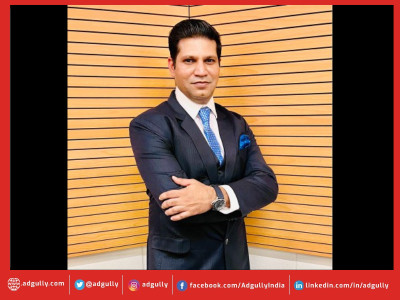
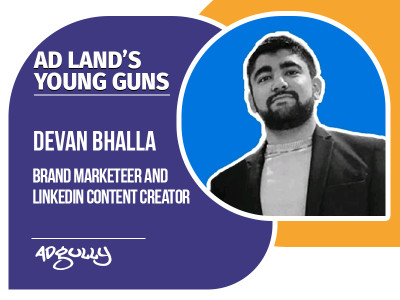

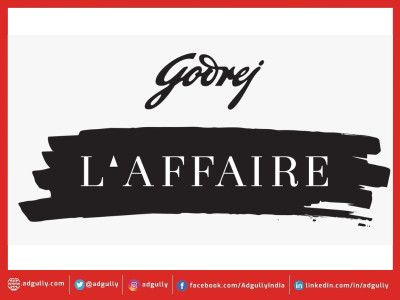




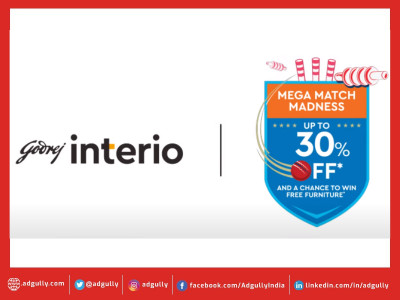


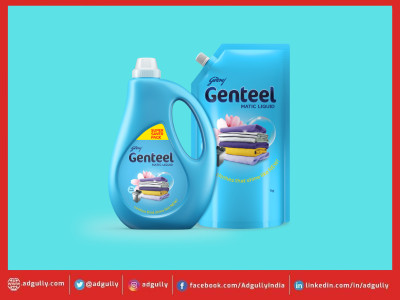


Share
Facebook
YouTube
Tweet
Twitter
LinkedIn